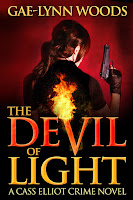 Ahh, writing advice. What glorious frustration. So little consensus. So much contradiction. As nice as it would be to think there's an absolute 'right' answer to every writing question, much of it (perhaps all of it) boils down to opinion. Seriously. Things as fundamental as the serial comma and capitalization at the beginning of a sentence (think E. E. Cummings) are negotiable.
Ahh, writing advice. What glorious frustration. So little consensus. So much contradiction. As nice as it would be to think there's an absolute 'right' answer to every writing question, much of it (perhaps all of it) boils down to opinion. Seriously. Things as fundamental as the serial comma and capitalization at the beginning of a sentence (think E. E. Cummings) are negotiable.One of the most contentious topics in writing is the prologue. Merriam-Webster defines a prologue as: the preface or introduction to a literary work. Seems innocuous enough, but apparently not. People are passionate in either direction; they absolutely love prologues or utterly disdain their use.
It's a lazy way of introducing backstory, they say.
Everybody knows that nobody reads prologues, they say. If you want anybody to read it, put it in Chapter 1.
I'm a prologue lover, and not convinced the prologue should be written off, so to speak. Check out how these Big Best Selling authors use prologues:
In FEVER OF THE BONE, Val McDermid lets the protagonist tell us how they justify the murder(s) they are committing. We get a taste the very logical insanity to follow.
J.R.R. Tolkien uses the long prologue to THE FELLOWSHIP OF THE RING to introduce the world we're entering. We learn about hobbits, their talents, their habits, even their pipe tobacco preferences. More importantly, Tolkien summarizes Bilbo Baggins' finding of the ring in THE HOBBIT, the event that drives the Lord of the Rings Trilogy.
I think Clive Cussler uses prologues in all of his books. If I've read one without a prologue, I can't remember it. His prologues are set in a period of time before the main story - sometimes centuries, sometimes decades - and provide historical context for the thriller to follow. They also provide clues to the mystery winding through that thriller.
The prologue to Stephen King's THE STAND tells us how the horror begins, and gives us a hint of the terror to come. [Charlie wakes his wife Sally in the middle of the night, in the middle of his shift at the military base, frightening her as he hustles his family into the car and off the base. Something has gone wrong. The clock went from green to red and whatever it is, whatever they do in that lab, killed those nearest it quickly. Charlie should be dead, too, but the computerized fail-safe failed and here he is, out in the wide world, driving east because the wind is blowing west. It wasn't long before Charlie was coughing steadily. (I couldn't wait to start Chapter 1.)]

In each case, the prologue makes the book better. (See? Opinion.) When I read the word 'prologue', it's as if the author has pulled out a comfy chair, giving me a chance to settle in, put my feet up, adjust that little cushion behind my back, and feel a delicious rush of anticipation about what's to come.
I love prologues when they:
- are relatively brief
- provide a bit of world building that would otherwise drag down the first few chapters
- give the reader one-up on the characters by providing a look into a villain's mind or a glimpse at a future event
- describe an event that happens in a time period different from the main story, either past or future, with a reference later in the book back to that event to give the reader that 'aha!' moment and make us feel smart

I've used prologues in the Cass Elliot novels to give readers a glimpse of the killer Cass will hunt. To share a bit of that killer's personality, psychology, or methodology. I've also used a prologue to describe a crime that occurred almost 40 years ago, that triggers the present-day mystery to follow.
How do you know if a prologue is right for your books? Read other books in the same genre and see how prologues work - or don't. If you plan to query a particular agent, visit her website and find out how she feels about the prologue. If she despises them and you love them, leave it out. If you're self-published, ask your beta readers and editor if they think the prologue adds to your story.
Bottom line: If you try to follow all the writing advice out there, you'll go nuts from trying to reconcile all the contradictions. My advice for what it's worth: find the style that works for you and stick with it. If prologues light you up, write them. If not, don't.
Do you use prologues, and if so, how? Do you like reading prologues? Why or why not?
See feedback on prologues from real live readers here: An Update on the Prologue Controversy.
photo credit: Typebars II via photopin (license)
photo credit: Un anillo para gobernarlos a todos via photopin (license)
photo credit: The Moon Lives in the Lining of Your Skin via photopin (license)
